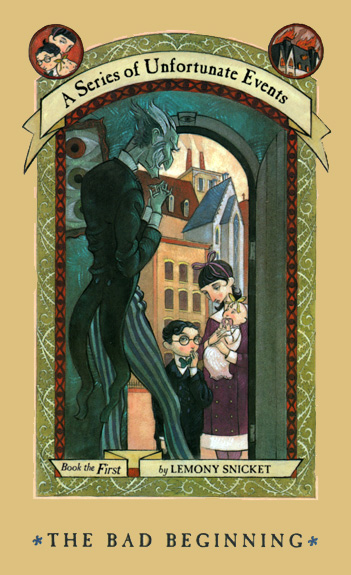
A fortunate series
It’s strange to go back and look at your childhood television programs with fresh, pseudo-adult eyes. Things that were probably never intended to be inappropriate can often yield a chuckle from the teenager who’s suddenly realized the double entendre in a cartoon character’s innocent words. The older viewer will unexpectedly catch references and jokes that were perfectly placed to keep the attention of unenthused parents but sail right over an unworldly toddler’s head. Cartoons like Adventure Time and SpongeBob SquarePants are great examples of this phenomenon, and their purposeful use of jokes that apply on two levels is in large part why they have found such success in a diverse audience.
But in the literary world, the master of mass appeal has to be Daniel Handler, the man behind the pseudonym Lemony Snicket, who will be visiting Washington this week. Snicket is the children’s author who penned the novels of A Series of Unfortunate Events, as well as his four-part prequel: All the Wrong Questions, one part of which has been released.
I haven’t yet read Snicket’s new series, but that’s because I decided that before I did, I would reread all his old works. Friends warned me I would be sorely disappointed in this venture — that, much as I feel when I rewatch shows like All That and The Amanda Show, my expectations would be so high that I would inevitably be disappointed, effectively destroying a happy memory of my youth. Unpersuaded, I cracked open the first book.
I started, logically, with The Bad Beginning, savoring all the minute details any reader could easily miss the first time around and picking up so much more than I ever understood as a child. On second read, my reaction to these books was utter despair, a crushing sadness that escaped me as a child. People die in these books. Nothing is fair. It’s heartbreaking.
But luckily, none of this emotional trauma came from disillusionment over the series. These books were still as good, if not better, than they had been the first time around. Snicket is a master of dark subject matter. As a kid, I never noticed the grim nature of these stories. Of course I understood as a child that the things happening were unfortunate, as per the title of the series, but it wasn’t until I was much older that I actually felt the full weight of the situations the Baudelaire orphans found themselves in. And the subtle jokes Snicket throws in, which I never quite caught the first time — had me unexpectedly cracking a smile as I read.
This is to say nothing of the helpful advice and musings Snicket sprinkles throughout the book in the form of weird and colorful metaphors. Snicket’s book of wisdom, titled Horseradish: Bitter Truths You Can’t Avoid is a collection of these same tips and tidbits about life. I continue to find these words applicable at every reading of the advice book, even though I first picked it up long after my childhood. There are some tips that get so dark — including thoughts on death and loneliness — that I wonder how this work could ever have been marketed to children, and then there are tidbits that are purely amusing.
Some perfectly combine adult themes with innocent humor, such as, “Love can change a person the way a parent can change a baby — awkwardly, and often with a great deal of mess,” and some are just painfully relatable, such as his words on coping with death: “It is like walking up the stairs to your bedroom in the dark, and thinking there is one more stair than there is. Your foot falls down, through the air, and there is a sickly moment of dark surprise as you try and readjust the way you thought of things.”
I could go on quoting him all day. There’s universality in his messages, a wittiness that transcends age and a truth that is more fully realized the older you get. In a culture of unfounded nostalgia, in which everything in the past seems dreamy compared to the present, Snicket’s novels stand as worthy works to continue to admire and revisit.



